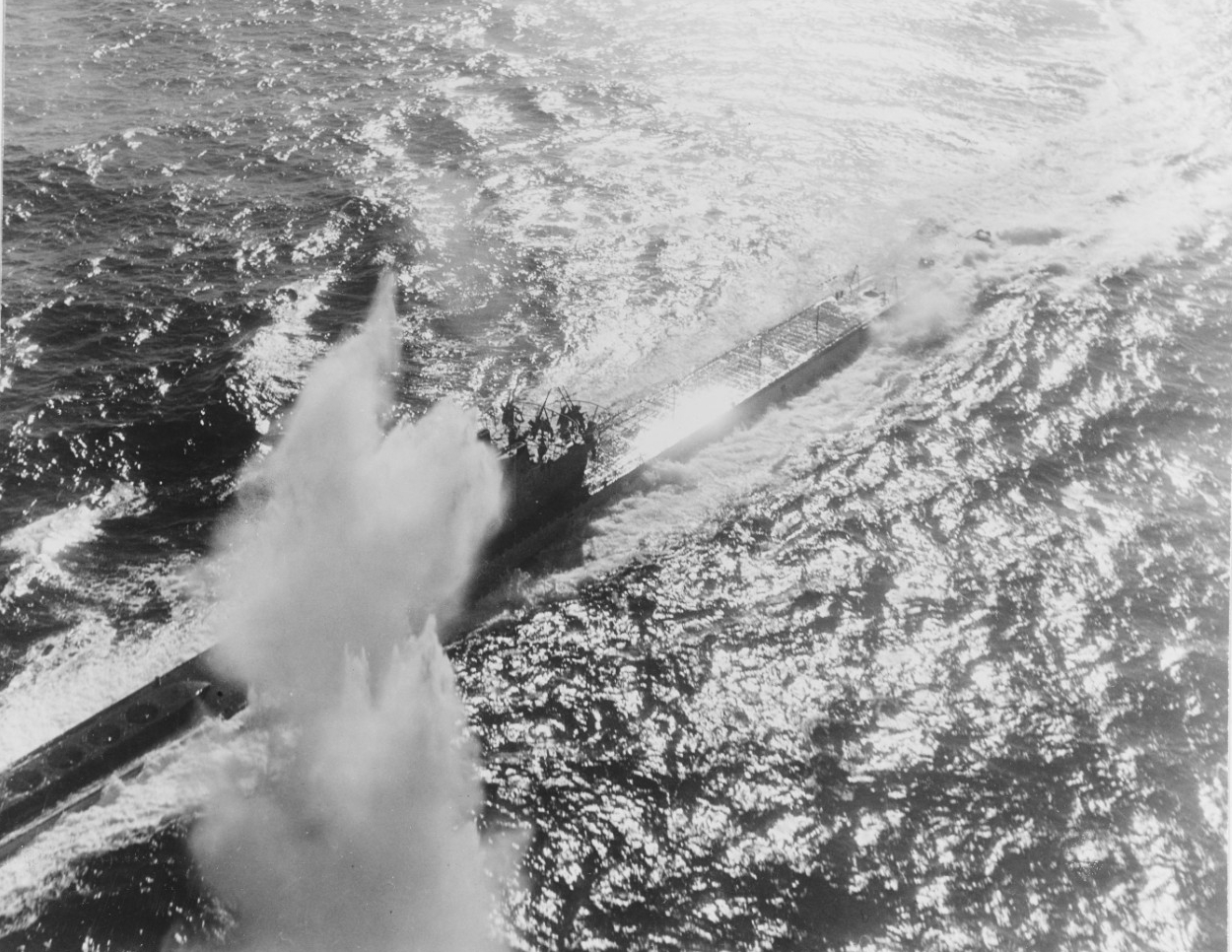
Impact on World War II
"The Battle of the Atlantic was the only campaign of World War II that gave Winston Churchill sleepless nights. As he said at the great moment of crisis in June 1940: “Without victory there is no survival.”"
~ Churchill Proceedings – Canada and the Battle of the Atlantic

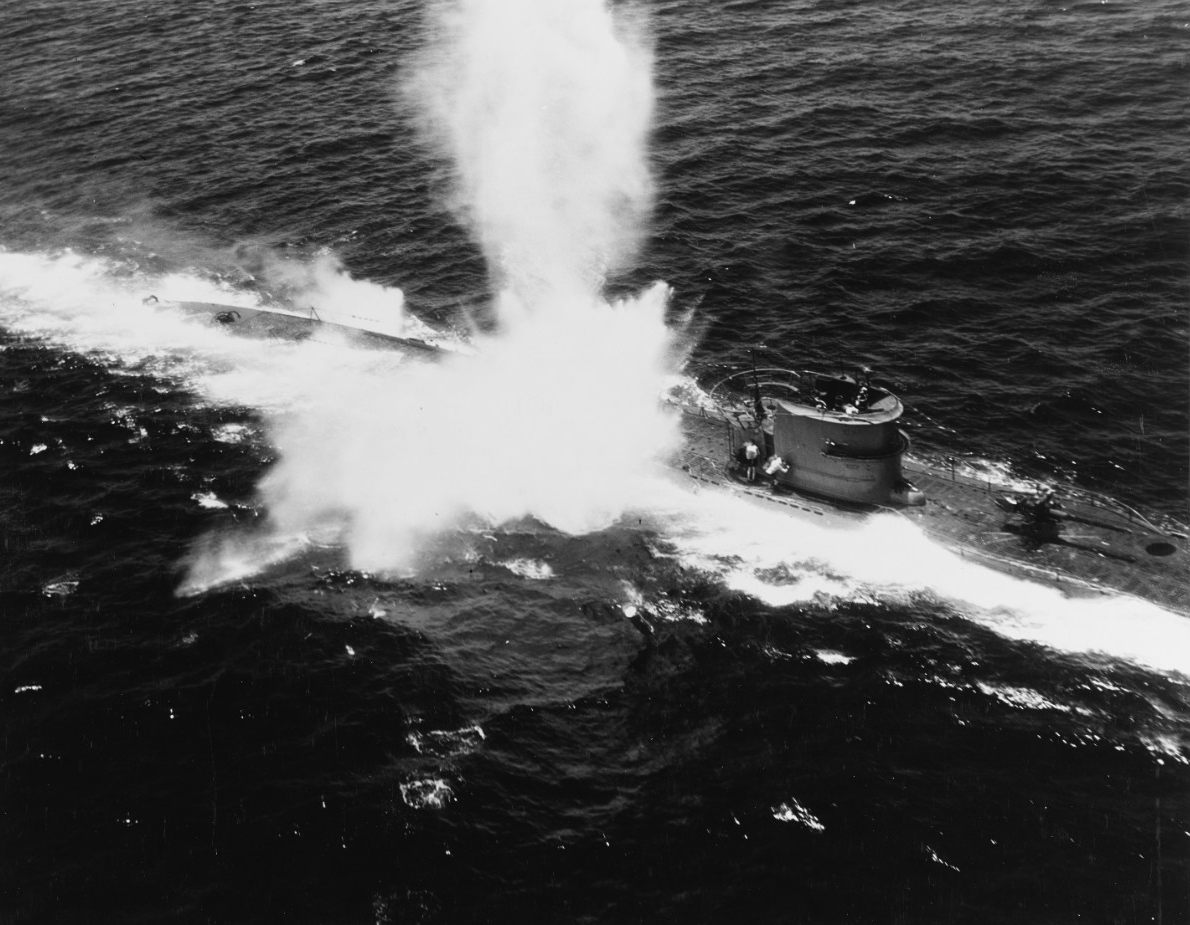
This striking series of photos from July 1943 shows attacks on a German U-boat by aircraft from a U.S. Navy escort carrier. Photos and caption courtesy of Naval History and Heritage Command.
The Battle of the Atlantic was an ongoing conflict throughout almost all of World War II. Control of the Atlantic, allowing reliable shipment of supplies, was pivotal to the war. Enigma decrypts would be central in the Allies' efforts to find and destroy German U-boats.
Oral interview with Janice M. Bernario, a codebreaker at Bletchley Park. Interview courtesy of the Atlanta History Center.
"To keep its secret strength, the U-boat must not be seen, not heard, not be located before or during an
attack. If the U-boat is located by the enemy it loses almost all prospect of success."
~ Jeffrey K. Bray, Ultra in the Atlantic
German submarine U-442 running on the surface near a burning tanker, January 1943. Photo and caption courtesy of Naval History and Hertiage Command.
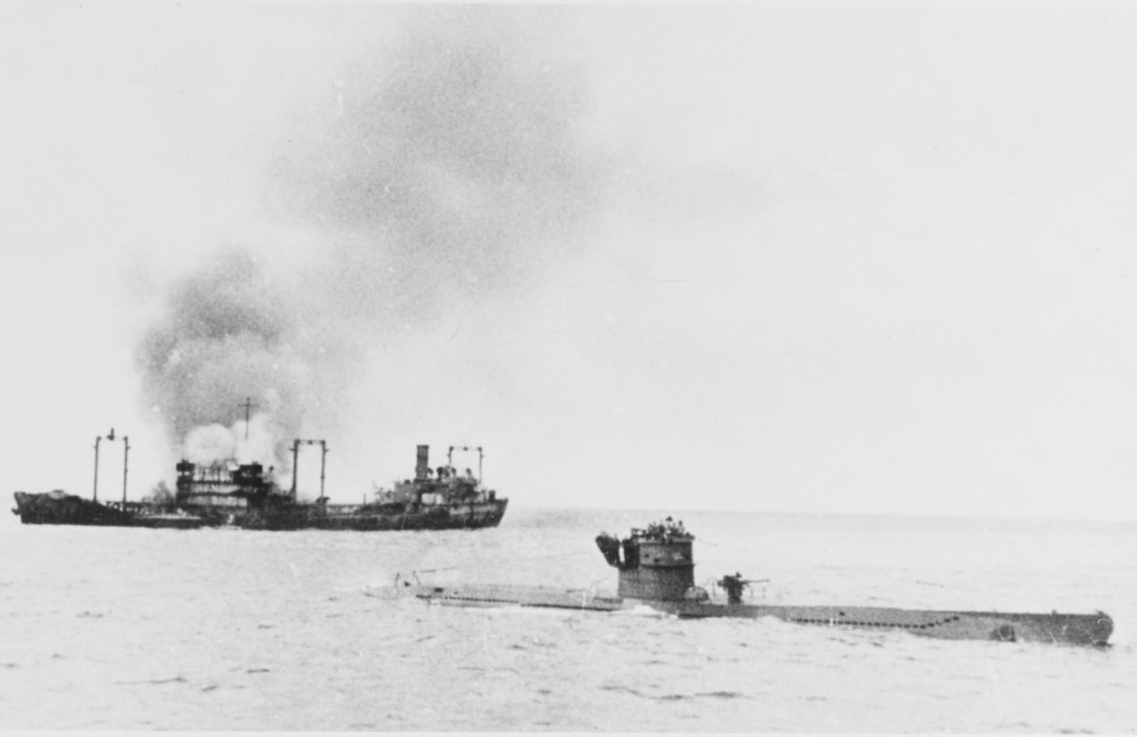
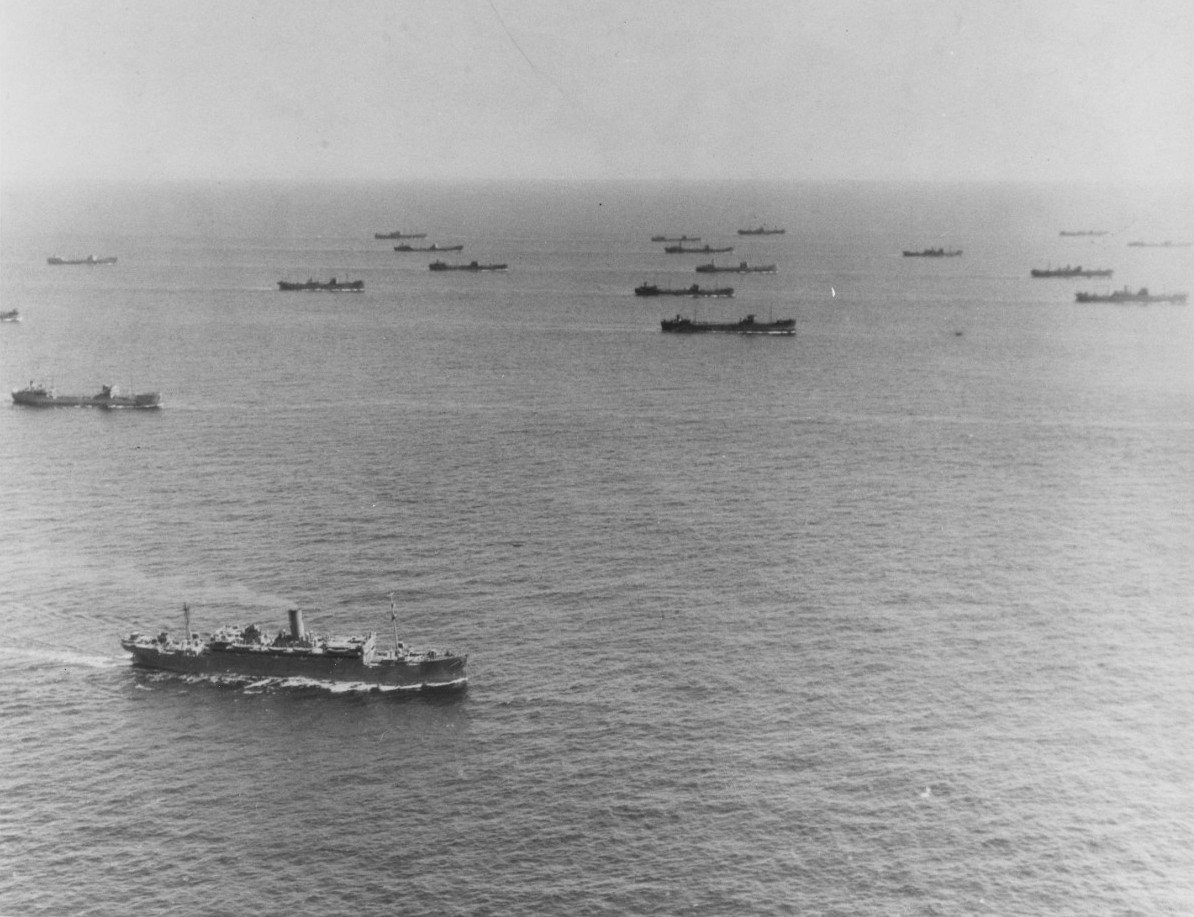
“As well as the exceptional value to be gained by the increasing knowledge about the German U-boat employment, this special intelligence was used in a tactical way that related to the surface war. The knowledge gained from Ultra information played a key role in the devastating blow that the British dealt the German supply fleet in June. Without a doubt, the British morale needed the boost that this success must have given it.”
~ Jerry Russell, Cdr., USN, Ultra and the Campaign Against the U-boats in World War II
North Atlantic convoy of 24 ships steaming south of Newfoundland, Canada, on 28 July 1942. Photo and caption courtesy of Naval History and Hertiage Command.
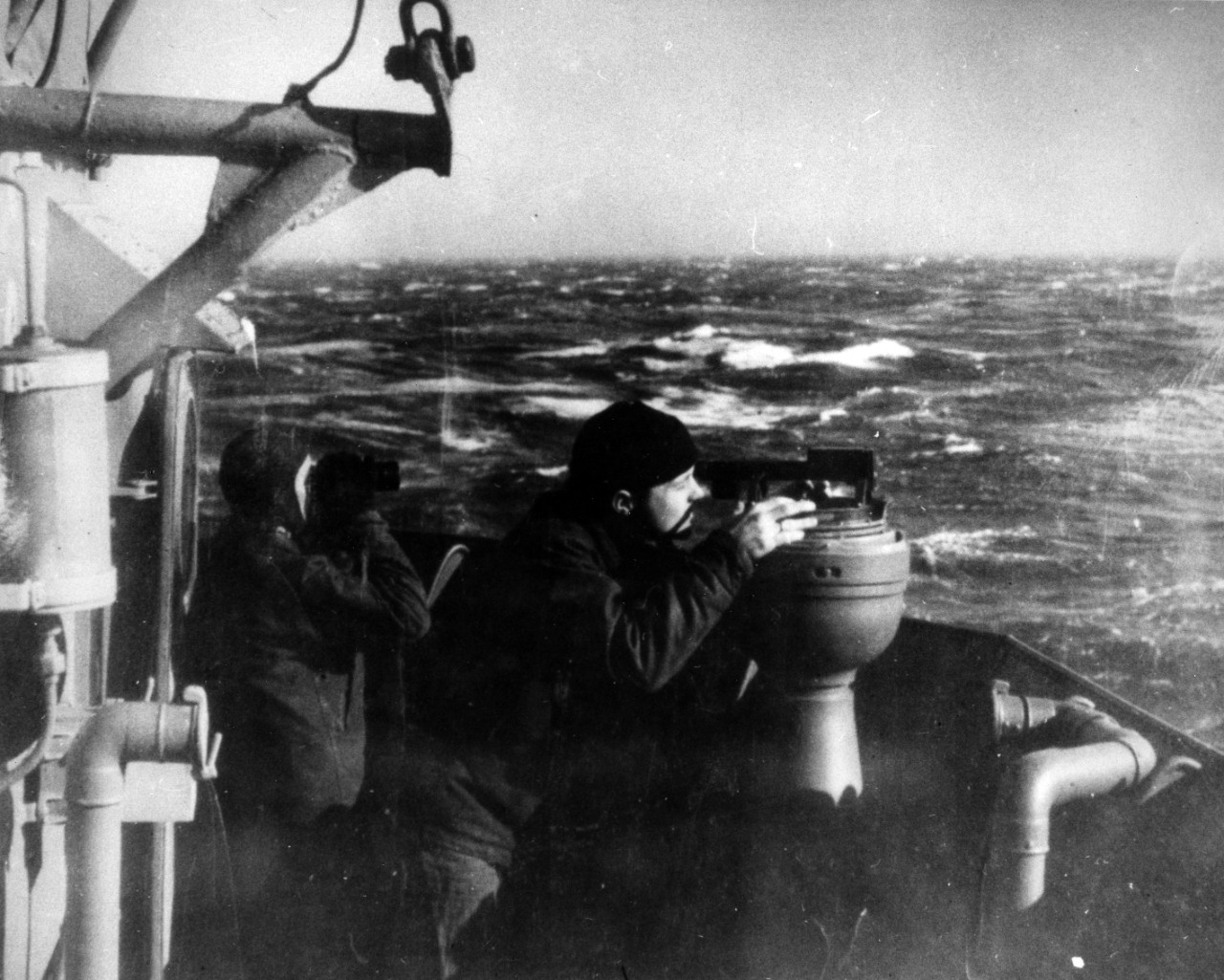
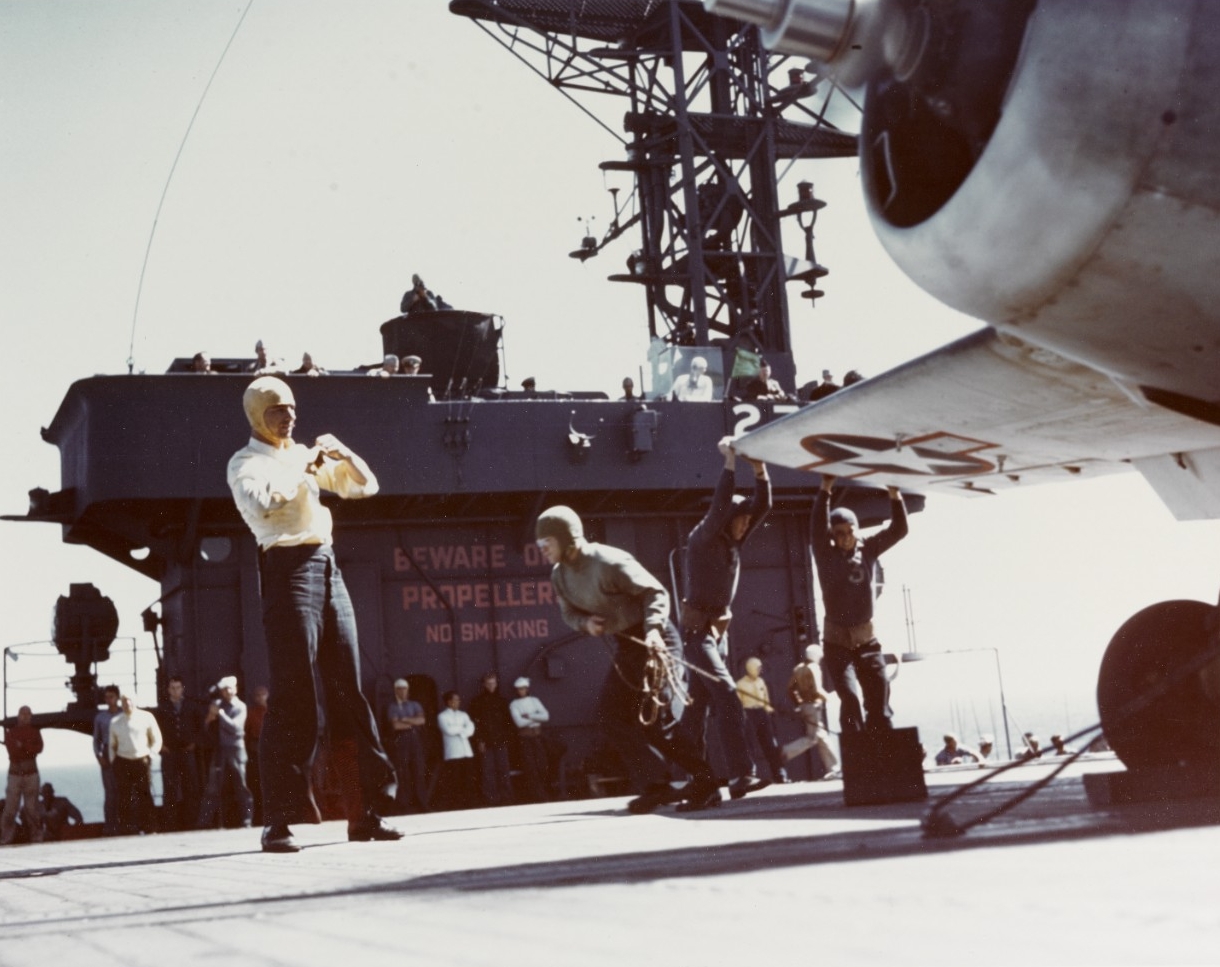
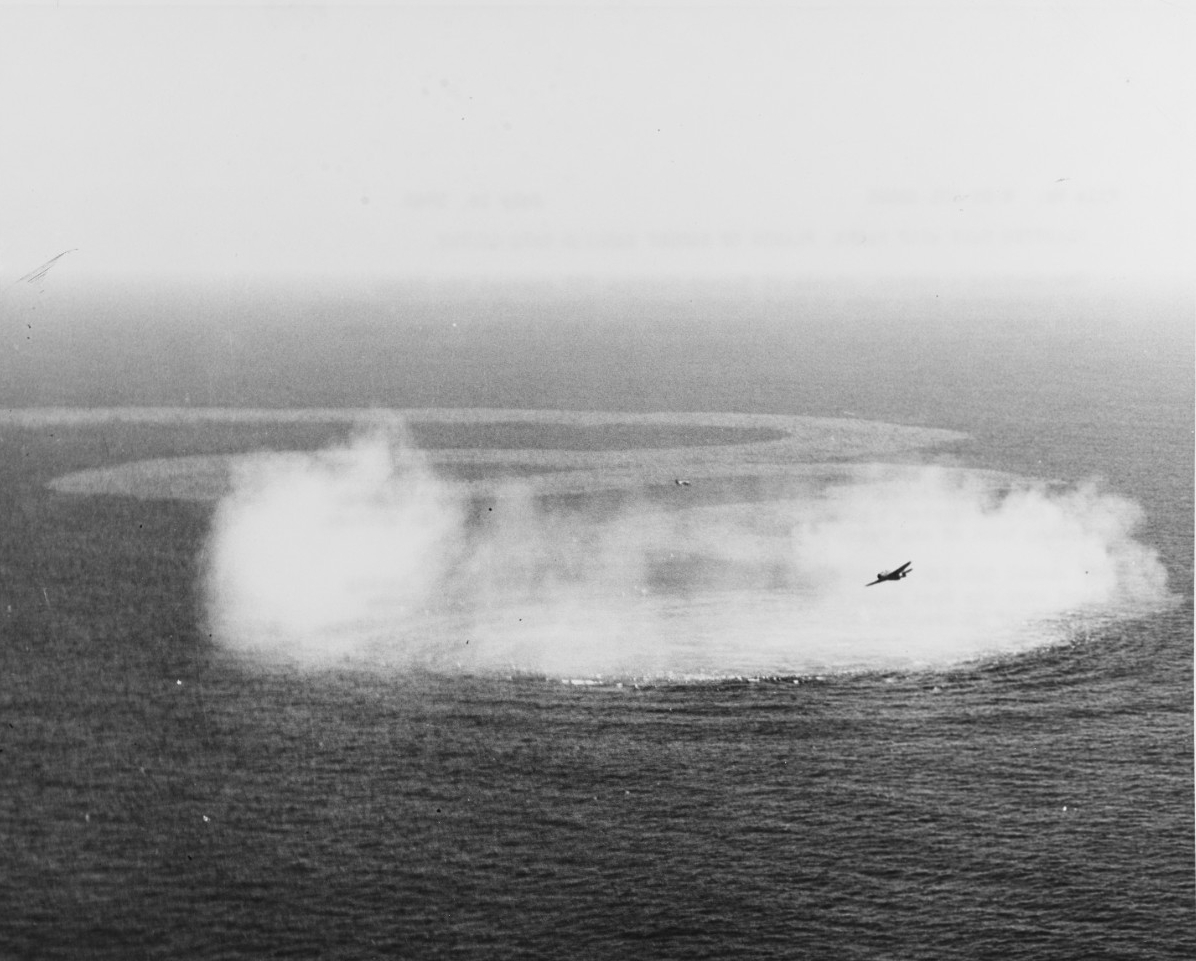
Photos courtesy of Naval History and Heritage Command.
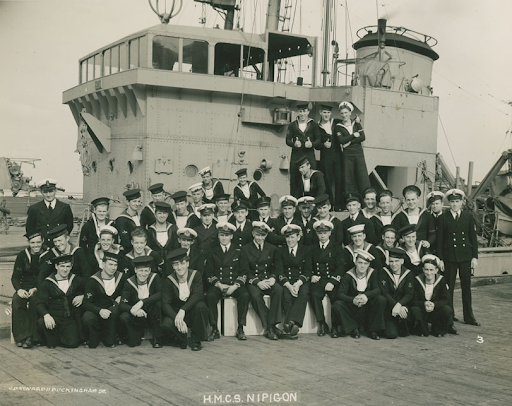
"Convoy HX 155, with 54 ships out of Nova Scotia in October 1941, changed course on the basis of ULTRA at least twice during its crossing to avoid sub-infested waters- and arrived in Britain with its cargoes of gasoline, fuel oil, sugar, steel, copper, and grain entire and intact."
~ David Kahn, Codebreaking and the Battle of the Atlantic.
'An East Coast Port': Halifax in Wartime, 1939-1945. Photo courtesy of Nova Scotia Archives.
D-Day & Double Agents
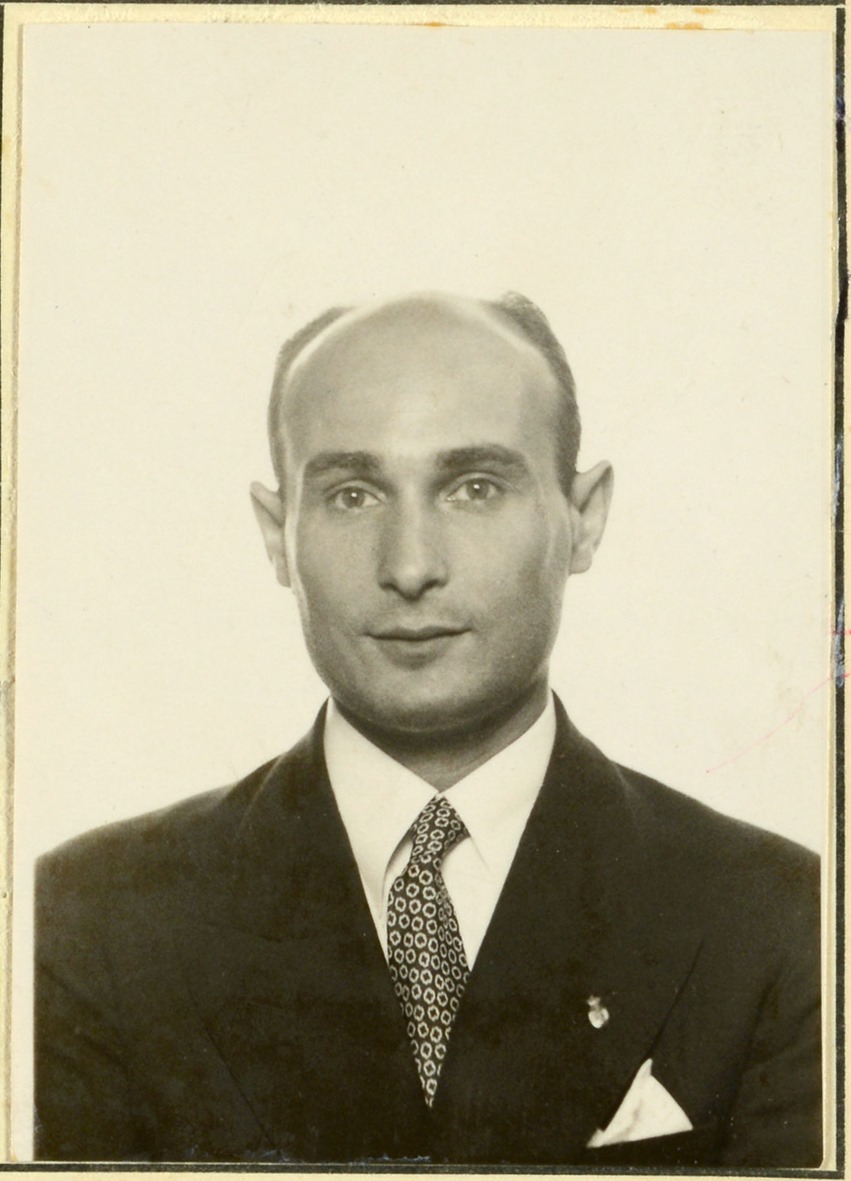
Juan Pujol Garcia (codename "Garbo") pretended to spy on England by providing Germany with fictitious but believable reports. His reports, encrypted using the Enigma Code, were discovered by Bletchley Park. (Tavares).
They discovered Garbo, who had been fabricating these reports from overseas, was exceptionally talented, boasting a network of 27 fake sub-agents. He was recruited as a double agent, and he contributed to deceiving the Germans about D-Day. Garbo received high distinction awards from both sides.
Decrypted telegram courtesy of the UK National Archives.
"This feedback was also invaluable to the Allied deception effort in keeping their double agents believable: if the Germans were skeptical about some of the agent's reports, the XX Committee would know via Enigma. The agents, to preserve their believability in the Abwehr's eyes, could later disavow these reports."
~Ernest S. Tavares Jr., Operation Fortitude: The Closed Loop D-Day Deception
Plan
Enigma decrypts revealed the German response to deception attempts, and this made it possible to alter them to make them more effective.
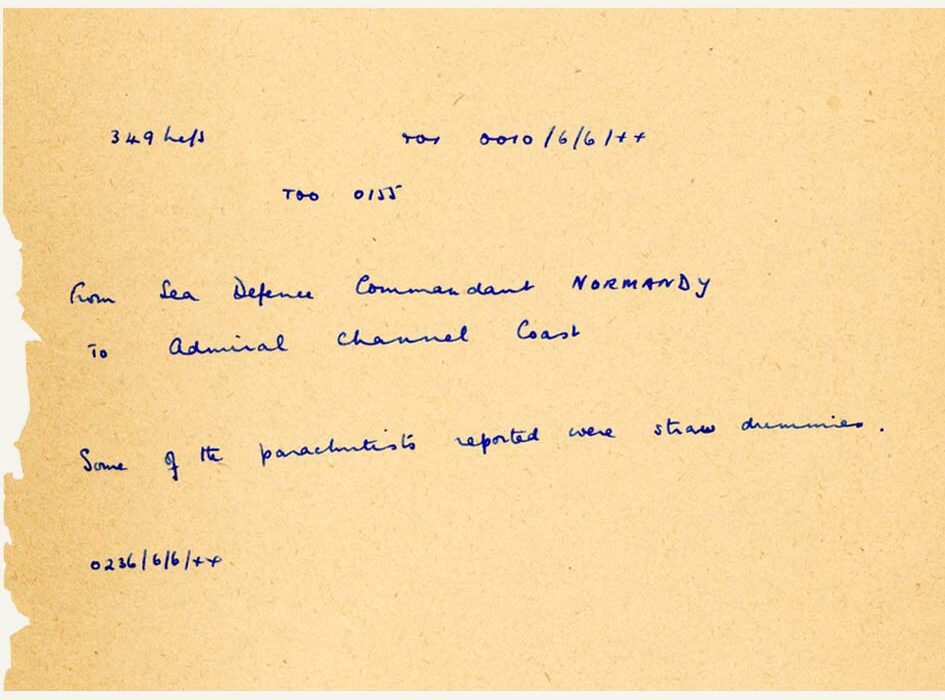
"Some of the parachutists reported were straw dummies."
The Germans didn't fall for the trap, although they didn't suspect a large invasion. Information like this would affect strategy used by General Eisenhower, and would play a large part in a successful D-Day.
Decrypted message courtesy of Bletchley Park.
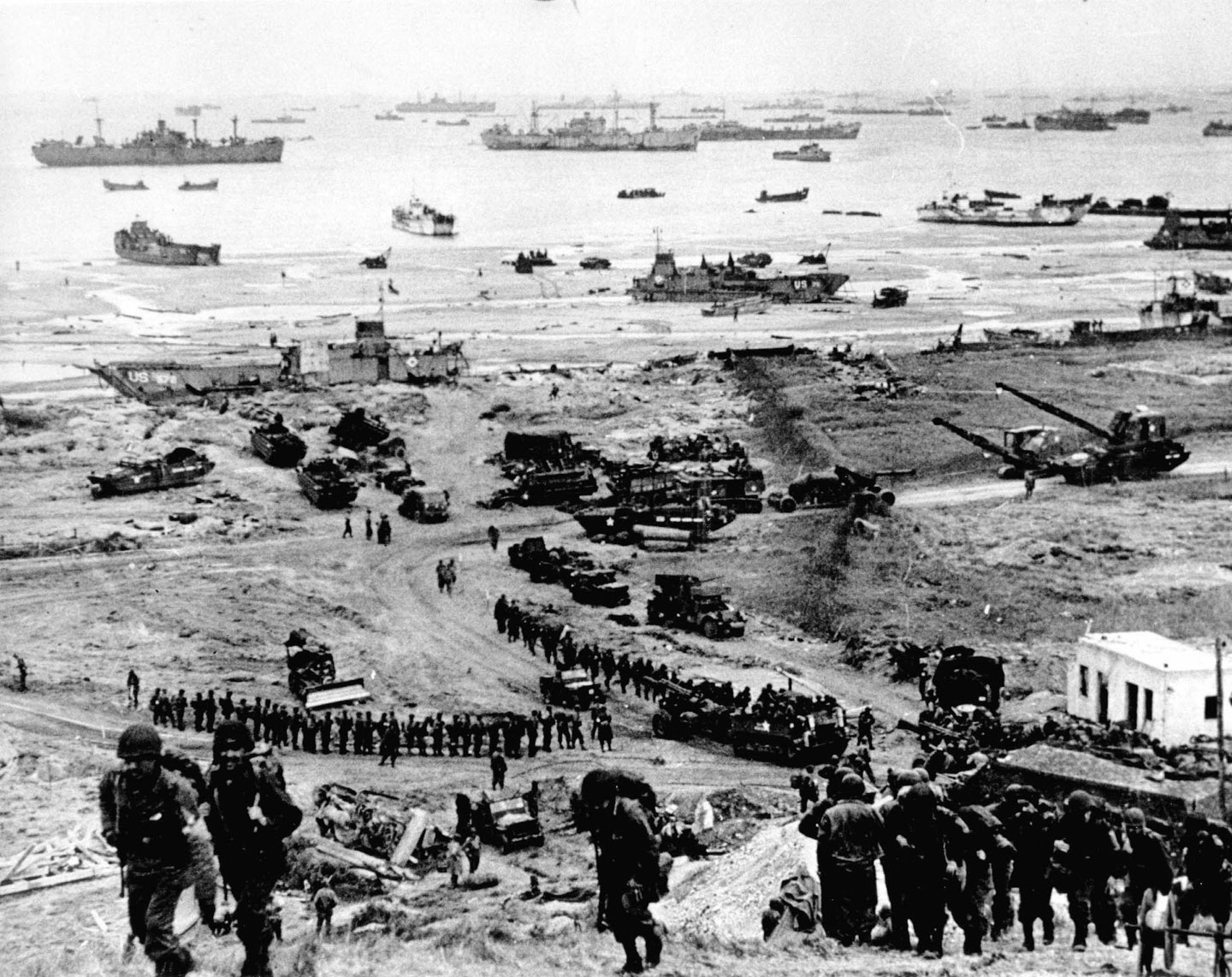
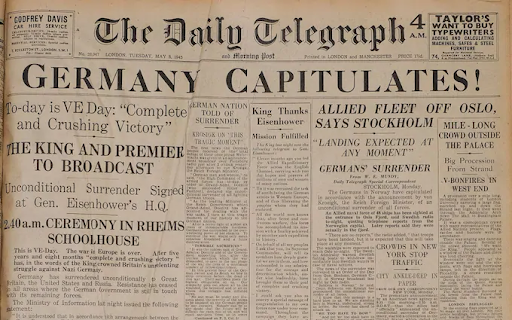
"The build-up of Omaha Beach. Reinforcements of men and equipment moving inland. SC193082" Photo courtesy of U.S. Army Center of Military History.
Headline celebrating the end of World War II in Europe. Photo courtesy of The Daily Telegraph.
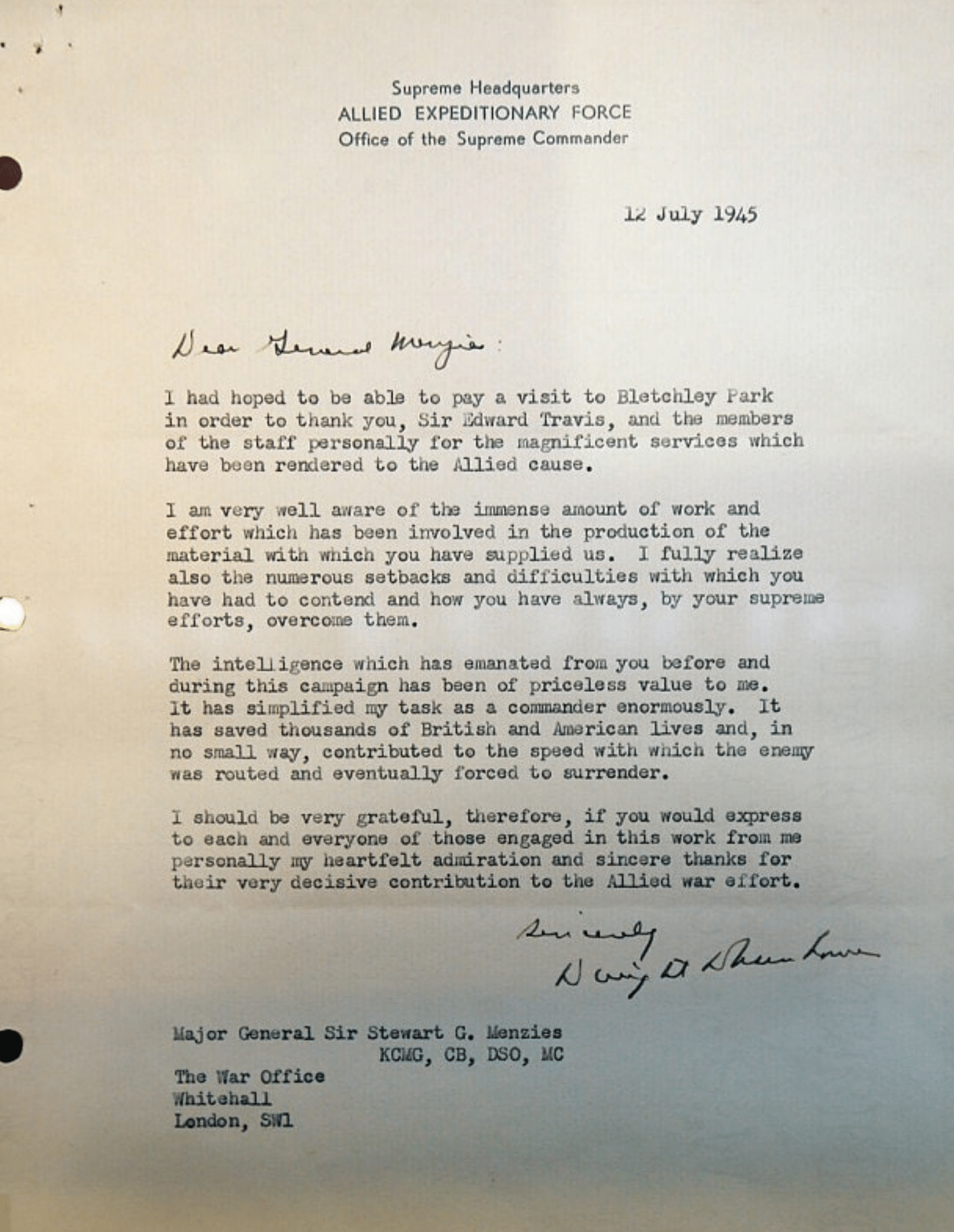
"The intelligence which has emanated from you before and during this campaign has been of priceless value to me. It has simplified my task as a commander enormously. It has saved thousands of British and American lives, and, in no small way, contributed to the speed with which the enemy was routed and eventually forced to surrender."
Letter from Dwight Eisenhower to the codebreakers at Bletchley Park. Photo courtesy of Eisenhower Foundation.